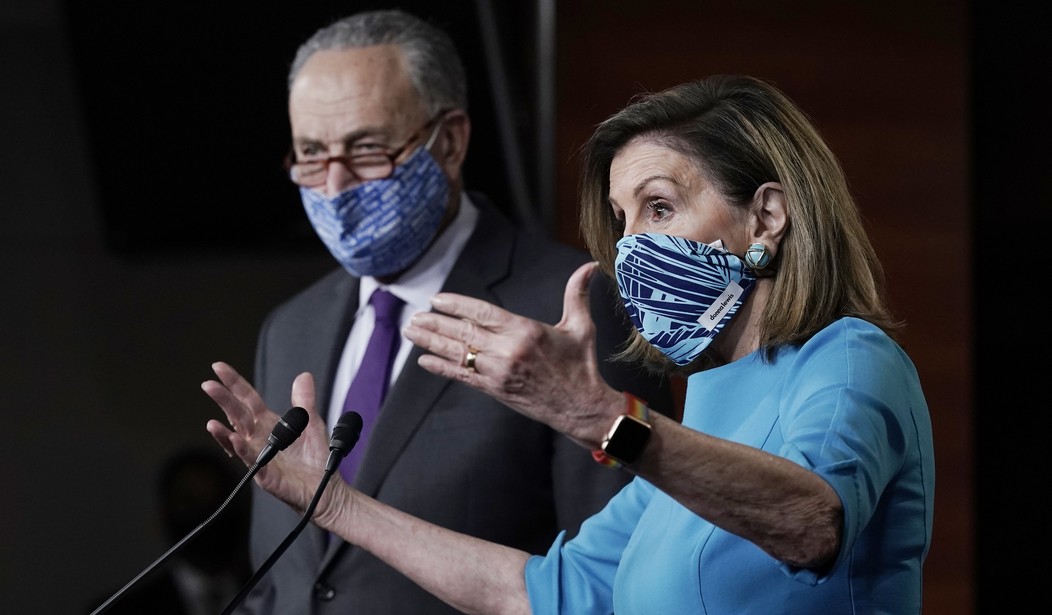Back in March, liberal journalist Jane Mayer wrote a piece forThe New Yorker insisting Americans across the political spectrum – proven, she said, by leaked internal research by a conservative-leaning group -- were supportive of the federal election reform bill interestingly named the For The People Act (H.R. 1 in the House, S.B. 1 in the Senate), that stalled in Congress Wednesday due to lack of bipartisan support.
Mayer, however, never reached out to Jason Snead, Chairman of theHonest Elections Project, because if she had she would have been disabused of the notion that Americans are in favor of most of the bill’s provisions.
To be fair, Mayer, in the MarchNew Yorker piece, does a half-hearted job of singling out one particular issue the bill addresses that voters might favor: increased transparency of “dark money” in elections. Her more thorough work is conflating that issue with the entire bill.
The participants conceded that the bill, which would stem the flow of dark money from such political donors as the billionaire oil magnate Charles Koch, was so popular that it wasn’t worth trying to mount a public-advocacy campaign to shift opinion. Instead, a senior Koch operative said that opponents would be better off ignoring the will of American voters and trying to kill the bill in Congress.
That last line is particularly interesting when considering the research Snead’s group has done showing that most of the provisions of the federal bill – which would ultimately override any state laws passed related to voter ID requirements, mail-in ballot safeguards, and changes to absentee voting, for example – are not popular among American voters.
“If you’re going to pass a bill for the people, you should probably listen to them,” Snead told reporters Wednesday following the Senate’s deadlock on the bill.
Recommended
Much has been made of the unpopularity of voter ID requirements by supporters of the federal reform effort, for example. But according to Honest Elections polling, 77 percent of Americans support photo ID requirements, with 64 percent of Black, 77 percent of Hispanic, and 76 percent of low-income voters indicating they do not view that requirement as a “burden.”
Additional polling conducted by the group indicates the other provisions included in the For The People Act are equally unpopular with American voters. Results show 74 percent of Americans support a requirement that all mailed ballots be received by election day; 66% of Americans support applying voter ID requirements to absentee ballots; and 62% of Americans expressed a belief that ballot harvesting should be illegal.
Snead said not only did the Senators who supported the bill in the Senate markup Wednesday fail to acknowledge the unpopularity of the bill’s provisions, they routinely tried to make the argument that because a minority of states had implemented some of the provisions, that meant all states should do the same.
“[They made the argument that] because a few states have decided that these particular policies work for them…the American people want that thrust on them by congress,” Snead said.
States making decisions to reform their individual election laws is “by design, not a quirk of the system,” Snead concluded.
Former Virginia Attorney General Ken Cuccinelli, who now leads the election transparency initiative for the Susan B. Anthony List and American Principles Project, also spoke with reporters Wednesday and called the bill a “complete violation of federalism principles.”
“There’s nothing much left for states to do if this passes,” Cuccinelli said.
In fact, many conservatives see the bill as little more than enshrining into law future wins for the Democrat party. In a Wall Street Journal op-ed, long-time Republican operative Karl Rove referred to the legislation as a Democrat “power grab”:
If the 817-page power grab passes, Washington would dictate how states run elections, even though the Constitution reserves that power to the states. The measure would gut voter-ID requirements while allowing partisan operatives to collect and submit an unlimited number of ballots, a practice called “ballot harvesting” that most states outlaw. S.1 would also prohibit states from cleaning registration rolls by removing people who haven’t voted for years and failed to return a postage-paid card affirming they’re still at that address—even if the Postal Service says they’ve moved and didn’t leave a forwarding address.
By Thursday, news had broken that West Virginia Democrat Sen. Joe Manchin was throwing his support behind a more“measured” federal election reform bill, the John Lewis Voting Rights Act, that would implement “a federal process for reviewing changes to voting rules in any jurisdiction nationwide” and would still mean federal oversight of state election law changes in all 50 states.
Conservatives may not be willing to support even a watered-down version of a federal bill, however. Both Snead and Cuccinelli on Wednesday shot down the notion the GOP might strategically counter Democrats’ plans with federal election reform of their own.
“It isn’t that there is some other federal imposition that should take place,” Cuccinelli said. “It’s that [election reform] should be debated in the states.”
“We don’t need a republican counter to the federal takeover with our own federal takeover,” Snead added.
Sarah Lee is a freelance writer and policy wonk living and working in Washington, DC.

























Join the conversation as a VIP Member